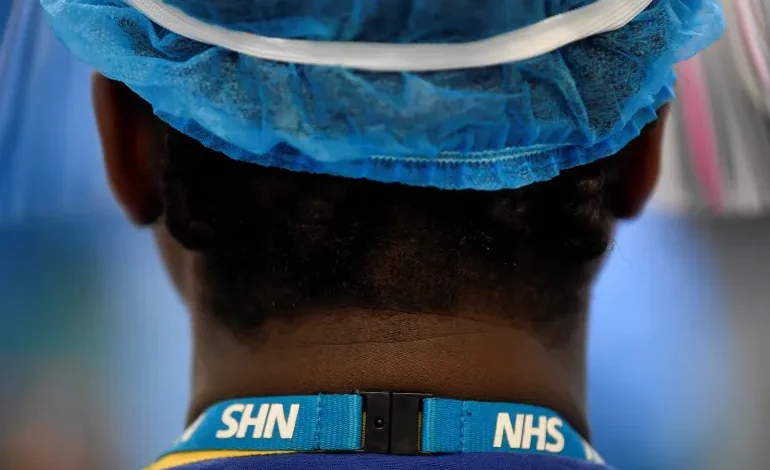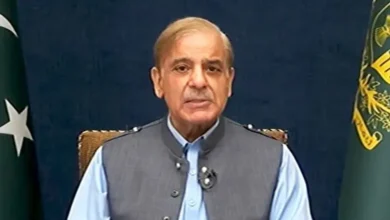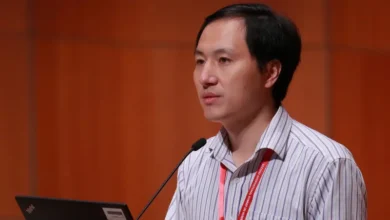UK’s health system grapples with battle between gender and sex

As debates over gender identities rage in the United Kingdom, several medical professionals have said that they fear speaking on the issue, worried that by doing so they could face bullying, harassment, and threats of disciplinary action for alleged discrimination.
They also warned that health services could be changed in a way that ultimately harms patients and the wider society, should sex-based medical terminology and practices be eroded while gender identities are favoured.
The three experts Al Jazeera spoke to for this article requested anonymity for fear of reprisals, personally and to their careers.
From a medical perspective, human beings come in two forms, male or female.
But in recent years, gender identities have become more prominent, posing challenges for key sectors such as education and health.They also warned that health services could be changed in a way that ultimately harms patients and the wider society, should sex-based medical terminology and practices be eroded while gender identities are favoured.
The three experts Al Jazeera spoke to for this article requested anonymity for fear of reprisals, personally and to their careers.
From a medical perspective, human beings come in two forms, male or female.
But in recent years, gender identities have become more prominent, posing challenges for key sectors such as education and health.Gender is characterised as a person’s internal idea of the qualities of being male or female or otherwise. It is seen as an identity and is not qualified by biological markers.
It is often fluid but always self-declared.
And to make the matter more complicated, gender has often been used as a polite synonym for sex, especially in the United States.
In February 2020, as a forensic psychiatrist, Edith* became increasingly concerned at the conflation of sex with gender after the Association for LGBTQ+ Doctors and Dentists (GLADD) announced that the UK’s General Medical Council (GMC), the regulatory body that educates and trains doctors, would remove sex markers – which GLADD called “gender” – as a protected characteristic from its online public register.Some argue that patients, for instance sexual violence victims whose abusers were of the opposite sex, should have the right to know the biological sex of their doctors.
Others say doctors should have the right to identify how they wish.
In November 2022, the British Medical Association (BMA) published a report titled “LGBTQ+ equality in medicine”, saying: “Doctors come from a broad cross section of backgrounds, experiences, sexual orientations and gender identities.
“Discrimination, whether from patients or from colleagues, has a detrimental impact on doctors’ lives. The BMA is clear that discrimination on the basis of sexual orientation and/or gender identity has no place in the medical profession.”
But according to Edith, there is pressure to push an affirmative approach to all matters of gender identity over evidence-based methods.
“It’s not a psychiatrist’s job to promote positive stories; you’re supposed to be neutral and objective,” said Edith.
At an educational event, Edith submitted questions to a panel regarding trans women in mental-health institutions who change gender while awaiting criminal trials.
“They found it [the question] ‘transphobic’, ‘discriminatory’ and ‘biased’. I’m a forensic psychiatrist, this is what you see. Just because you state a fact and you don’t like the fact, it doesn’t mean it doesn’t exist … People do game the system.”
Earlier this year, the case of Isla Bryson, who now identifies as a trans woman, prompted concerns. The Scottish Prison Service initially placed Bryson, who was convicted of raping women in 2016 and 2019 while known as Adam Graham, in Scotland’s only all-female prison.
But after criticism from politicians and women’s rights groups, Bryson was moved to a men’s prison.
At the time of publishing, GLADD had not responded to Al Jazeera’s request for comment.
When approached for a response, a BMA spokesperson pointed to an online statement of the organisation’s position and said it stood by signing the GLADD charter, which calls for so-called conversion therapy to be banned – another controversial subject.
Some are concerned that such a move could see clinicians providing meaningful therapy prosecuted.
‘People don’t dare speak’
Ashley*, who has years of experience in medical teaching in colleges and hospitals education, said a culture of fear is brewing.
“People don’t dare speak,” Ashley said. “Even doctors don’t, because it’s just not worth it.”Ashley said a group of students and healthcare workers affiliated with GLADD routinely comb through tweets of clinicians who decline to use gender identity terms, such as “cis”, instead of sex-based medical terminology.
Ashley shared screenshots of a presentation given by a GLADD-aligned diversity director in November last year, which stated hospitals should accommodate trans women in female wards.
“It’s in the interest of the population not to have queer theory, gender identity in the NHS [National Health Service],” said Ashley, “I worry about the elderly being put in mixed-sex wards. It’s safeguarding issues that aren’t being looked at and I do feel like it’s a failure of the government right now because they’re not protecting the population from this.”
For his part, as the gender rows grind on, the UK’s Health Secretary, Steve Barclay, has asked leaders of NHS bodies to review memberships of LGBTQ+ charities and assess the necessity of having diversity officers.
A spokesperson for the Department of Health and Social Care said in a statement sent to Al Jazeera: “Taxpayers rightly expect value for money from every penny spent in our NHS. That is why the Health and Social Care Secretary has asked the NHS and all of the department’s arms-length bodies to review whether their diversity and inclusion memberships are good value for money, and consider ways to improve.”In its first-ever census that included gender identity, the Office for National Statistics stated this year that 262,000, or 0.5 percent of the population aged 16 and over in the UK identify as having a different gender identity than their birth sex.
According to British law, one does not need medical treatment to change from female to male on documents such as passports and driving licences.
But to adapt birth, marriage and death certificates, a five-pound ($6) Gender Recognition Certificate is necessary, and that requires a medical diagnosis of gender dysphoria and at least two years of living in the “affirmed gender”.
“There are there are clinicians who I’ve spoken to who’ve had men [patients] who identify as women and have had their records completely scrubbed of any information about their biological sex,” said Isadora Sanger, a retired psychiatrist who is still registered as a medical practitioner.
“They [trans patients] present with complaints that could be related to hormone treatment, and doctors are not even able to discuss this openly with them – and so it’s a really strained interaction, not being able to say or inquire … It’s just muzzled doctors from being able to do their job responsibly.”










